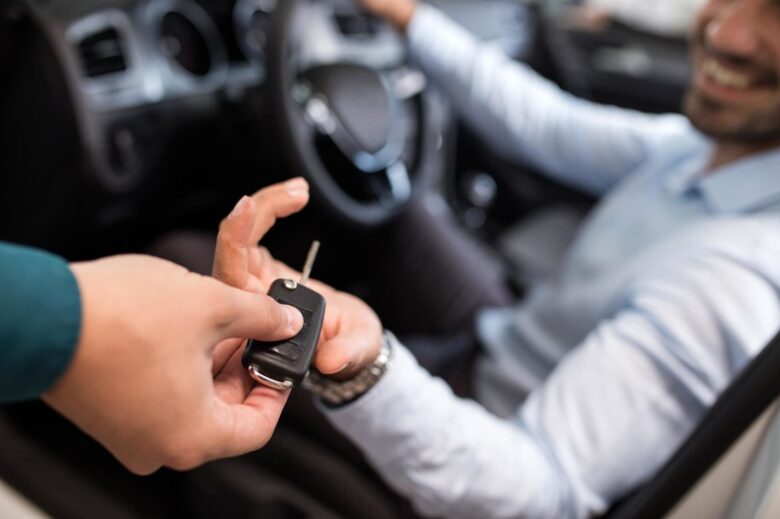When you buy a used car, it’s fun and affordable to drive a reliable vehicle without spending a lot of money on a new one. But you need to think through the process and do your research to make sure you’re making a good investment. If you’re looking to buy a used car, here are some important things you need to know.
1. Do Your Research
There’s a lot you need to know about used cars before you buy one. Make a list of everything you can afford, not just the price of the car itself, but also things like insurance, repairs, and gas. Once you know how much you can spend, look at the makes and models in that range. Consider factors like the car’s reliability, gas mileage, safety ratings, and trade-in value. Websites like Kelley Blue Book, Edmunds, and Consumer Reports offer reviews, ratings, and past performance data for many vehicles that are helpful for research.
2. Review the Vehicle History Report
If you’re looking to buy a used car, you’ll need a full vehicle history report. Services like Carfax and AutoCheck can provide you with detailed reports on who owned the car, any accidents the car has been involved in, ownership status, and maintenance records. This report can help you check your car’s history and avoid potential red flags, such as a false odometer or past major accidents. Check that the Vehicle Identification Number (VIN) on the report matches the VIN on the car.
3. Inspect the Car Carefully
To ensure that a used car is in good condition, it should be carefully inspected. First, take a close look at the exterior and interior of the car. Check for rust, dents, or scratches, and make sure the tires, lights, and windows are in good condition. Check the dashboard, seats, and controls of the vehicle for signs of damage or wear.
After you have inspected the car, you should take it for a test drive. Pay close attention to how the car moves, stops, and maneuvers. Pay attention to any strange noises or vibrations. Make sure all the features, such as the power windows, air conditioning, and radio, are working properly by testing them. During a test drive, try driving the car in different situations, such as on the highway and in the city, to get a good feel for how well it works.
4. Ask a Mechanic to Check Out the Car
Before you buy a car, it’s a good idea to have it checked out by a professional mechanic, even if you think it looks and feels good. A pre-purchase inspection by a qualified mechanic can reveal problems that may not be obvious at first glance. Mechanics will check the engine, transmission, suspension, and other major components to see if there are any problems. This inspection can give you a better idea of the overall health of your car and prevent you from having to pay for expensive repairs in the future.
5. Negotiate a Price
After you’ve completed all of your research and inspections, it’s time to negotiate a price. When negotiating, use the information you have gathered, such as the car’s history report and the mechanic’s inspection. You should be prepared to negotiate with the seller, whether it’s an individual or a dealer. Find out what the car is worth on the market and use that to back up your offer. If you’re looking for a used car, don’t be afraid to ask for a better price. Remember, this is normal.
6. Review the Paperwork
Carefully read all of the paperwork that accompanies the sale before you finalize your purchase. This includes any service agreements or warranties, as well as sales receipts. Check the title to make sure it’s clear and that there are no liens on the car. The agreed-upon price and any other terms of sale should be clearly stated on the bill of sale. If the car is still under warranty, read the fine print to find out what’s covered and how long it will last.
7. Consider the Total Cost of Ownership
In addition to the price of the car, you should also consider how much it will cost to maintain it. This includes rising costs such as fuel, insurance, and repairs. Insurance costs can vary depending on the type of car you drive and your driving record. The age and condition of your car can also affect maintenance costs. So it’s helpful to know what maintenance your make and model of car typically requires and how much it costs. Factor these costs into your budget to ensure you can afford the car in the long run.
8. Be Cautious with Private Sellers
Be careful when buying from private sellers and make sure you are dealing with a real person. Make sure the seller is who they say they are and that they are authorized to sell the car. If a deal seems too good to be true, do not accept it or pay someone without proper proof. Meet the seller in a safe place, such as a public place or a garage, and do not give them any personal information that is not necessary for the transaction.
9. Complete the Transaction
Once you have both agreed on a price and have reviewed all the paperwork, the sale is officially closed. Fill out all the paperwork required for the transfer of ownership and registration, and make sure you get copies of the signed documents. If you are buying a car from a dealer, in most cases they will handle the transfer of ownership and registration for you. If you are buying from a private seller, you will have to handle these matters in person at your local Department of Motor Vehicles (DMV).
Conclusion
Buying a used car requires a lot of care and attention to detail. By doing a lot of research, looking at cars, and talking to professionals, you can make an informed decision and find a reliable car that meets your needs. Don’t forget to negotiate, read all the paperwork, and think about how much it will cost you to own the car. By remembering these important tips, you can master the used car market and score great deals.
FAQs
1. How to Calculate the Value of a Used Car?
To determine a fair price for a used car, you first need to understand what the make and model is worth on the market. Use an online tool like Kelley Blue Book, Edmunds, or NADA Guides to get an estimate. These tools take into account factors like mileage, condition, and location. To find out how much something is worth, compare prices from different sellers and consider recent repairs or upgrades.
2. What to Look for When Looking at Used Cars?
During the visual inspection, you should look for exterior damage, such as rust, dents, or scratches. Check the tires, lights, and windows to see how they’re holding up. Check your car’s dashboard, seats, and controls for signs of wear. Make sure everything is working properly, including electronics and air conditioning.
3. Why is it important to get a vehicle history report?
A vehicle history report tells you important information about a car’s past, such as who previously owned the car, whether it’s been in an accident, and the status of its ownership. It can help you spot potential problems, such as odometer fraud, serious accidents, or flood damage. Reading this report can help you make decisions based on reliable information.
4. How can you judge the quality of a used car?
To know how reliable a used car is, look at the make and model’s past performance, including frequently asked questions and owner reviews. Make sure there are no recalls or known issues. Also, have a trusted mechanic perform a pre-purchase inspection to identify any mechanical issues.
5. Why is a test drive important?
A test drive gives you the chance to see for yourself how the car works. You can use it to determine how well your car drives, accelerates, and decelerates. During the test drive, pay attention to any strange noises and vibrations. Also, make sure that the steering and transmission are working properly. This can help you gain insight into the overall performance and reliability of your car.




